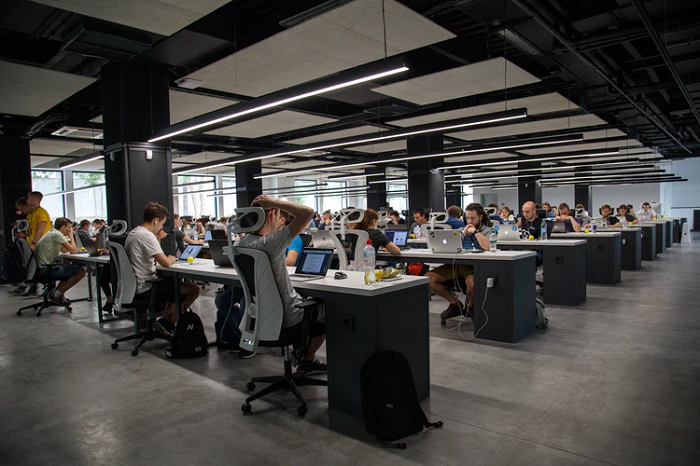

|
|

Image source
April 23 2021 - Artificial intelligence makes us think of robots and sci-fi - the uprising of machines as they discover they are smarter than their creators. You never really imagine AI being integrated into our daily lives until you stop and realize that the phone or computer you are reading this from most likely has AI technology.
AI is all around us. It is in our smartphones, in the computers we use, in our cars, our social media platforms - in our everyday lives. It has made many aspects of our lives easier: from our leisure activities to catching the latest news around the world. We use AI-powered tools at work, in our workflow tools, in filtering spam from our mailboxes, in accounting automation, and other automated processes. Even recruitment has found AI to be most helpful.
The Hiring Process
When we talk about recruitment, we normally think about face-to-face interviews and hours poring over hundreds of applicant resumés. The recruitment process is a long and tiring process that involves a lot of data - data that needs to be categorized and filtered down to the precious few that would address what the company needs in order to fill vacant positions.
This is where AI comes in. Certain tools like Applicant Tracking Systems can streamline the recruitment process significantly. It reduces the amount of administrative tasks that recruiters have to do like filling out forms, data encoding, setting schedules, sending emails, and the like as these tasks can be automated. These tasks can be automated with the help of robotics process automation.
Help from AI tools doesn’t just start when the resumes come flooding in. They could start as far back as writing the job ad. AI can help recruiters come up with succinct yet informative and complete job descriptions that would attract the right applicants. That in itself will help lessen the number of applicants that do not fit into the job description.
When it comes to weeding through that mountain of resumes, AI can check hundreds of resumes in a span of a few seconds. This allows for more resumés to be checked into the system in a lot less time. It gives everyone as fair a shot as can be offered with our current level of technology. It also ensures that there are fewer chances of your perfect candidate to slip through your fingers.
Instances of online applicant interviews have risen in number in recent years, most especially during the COVID-19 pandemic. Online interviews are favorable to both recruiter and interviewee. The interviewee no longer has to allow for travel time and spend long, anxiety-inducing minutes in an unfamiliar office waiting to be called into an interview room. Time spent on those can be spent preparing for the actual interview. On the recruitment team side, online interviews can give recruiters time to set the tone of the interview without the added pressure of trying to make a formal business environment appear less intimidating. Both parties are more at ease. Plus, the recruiter can jump from one interview to the next without having to leave their office.
One of the most important steps in recruitment is vetting and checking references. Without AI or automation, this step can take nearly two hours per candidate. So you can imagine the amount of time a recruiter spends calling up references, doing credit and background checks and employment histories of their applicants. Automating these will save recruiters hours in the process.
You can use bots to schedule calls or appointments, or even reach out with a set of questions to your applicants’ references. And you don’t have to wait until you’ve had your list of final applicants either. You can have your system send out these questionnaires or messages to the references earlier on in the process. The data gleaned from this can help you decide whether a candidate is a good fit for the company.
Process automation
Staffing is not just about hiring the right people. It’s about forming relationships and developing employees, both old and new. This includes establishing performance standards, training and development, and performance evaluations. All workflows that can benefit from automation.
We’ve touched lightly on robotics process automation earlier. What this does is that it automates rule-based, repetitive, and structured business processes thereby cutting down the amount of time and effort expended to complete them.
One process where RPA can help is during the onboarding of new hires. As long as there is a structured process in place, certain steps in the onboarding process can be automated. All the pertinent data needed from the newly minted employee can be fed into the automated system and be run through the gamut of steps needed to have this data stored in its proper place to be put into use. With an automated process, this will take significantly less time than when recruiters would input them manually.
Things like expense reports and time tracking are also made simple by using AI tools that can do error-free calculations. The results are much cleaner books that are closed on time every month and accurate budget reports.
Conclusion
AI systems can save companies a lot of time and money. They can improve the recruiting process for both the applicants and the recruiters, making for a better recruitment experience.
HRM Guide makes minimal use of cookies, including some placed to facilitate features such as Google Search. By continuing to use the site you are agreeing to the use of cookies. Learn more here
|
| Privacy Policy |
|
|